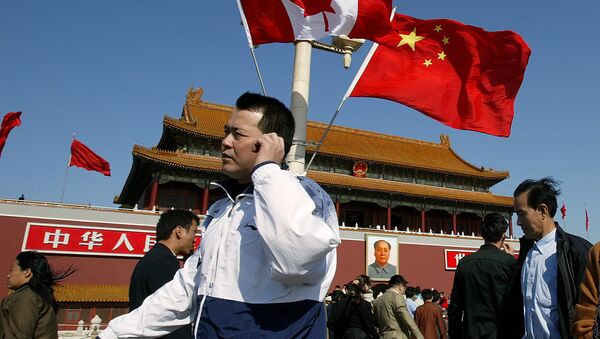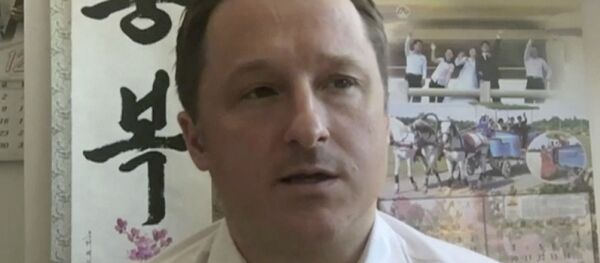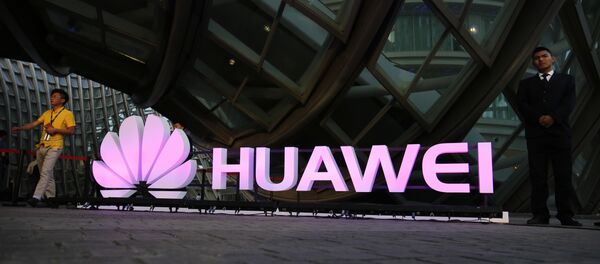Earlier, the Supreme Court of British Columbia in Canada ruled that Huawei's chief financial officer should be released on bail. According to the expert, a statement by US President Donald Trump about the conditions for his intervention in the extradition case is rather "ambiguous".
According to Canadian law, the United States must send all the papers for the extradition of a Chinese citizen within 60 days; the deadline is 8 January. On 10 December, a judge confirmed that they hadn't received such a request.
According to Yang Mian, an expert at the Chinese Institute of Mass Communications, the Canadian side has chosen a "soft" way to solve a complex problem.
"There're a number of reasons, including a legal one, to solve the problem in such a way. The recently voiced position of the Chinese Foreign Ministry has affected the choice. We should stress, however, that Meng Wanzhou is only released on bail. Now, if the United States doesn't request extradition within 60 days, then she can be released outright. Right now, the case is still open. The US is accusing her of deceit, and violating US sanctions against Iran. However, I want to emphasize that these are unilateral sanctions; the United States is trying to extend its domestic laws to international relations. In short, the Americans now have the ball; we just have to wait and see what they are going to do", the expert said.
Meanwhile, Donald Trump said he would definitely intervene in the matter if it is in the interests of national security or helps in trade negotiations with China.
READ MORE: Second Canadian Questioned by Chinese Authorities, Canadian FM Freeland Says
According to Alexander Lomanov, this statement hasn't made the US' position clear:
"Trump said he would act in accordance with the interests of reaching a trade agreement with China. Trump's position seems twofold. He may think that having such a high-ranking hostage could be very useful in trade negotiations; or he may try to settle the incident and move towards the Chinese side. In short, the acute crisis is now over, but this doesn't mean that the problem has been completely resolved".
The Chinese expert community considers the detention of Meng Wanzhou to be a final confirmation that the US is ready to use any leverage and will stop at nothing in order to prevent China from becoming a developed, scientific and technological power. This is what Alexander Lomanov said after having discussed the issue with Chinese colleagues. Breaching sanctions against trade with Iran is just a formal excuse.
In reality, Chinese experts are unanimous in saying that this is part of a general pressure campaign on Huawei in order to curb its development and the use of unfair competition methods. The expert also stressed that China recognized the fact that many countries have announced their refusal to purchase 5G communication equipment produced by this company.
READ MORE: ‘Scandalous': US Sets Dangerous Precedent With Arrest of Huawei Executive
This gave the Western media and a number of observers an opportunity to suggest that China is acting according to tit for tat. Meanwhile, China's Ministry of Foreign Affairs has partially clarified this delicate situation. According to Foreign Ministry spokesman Lu Kang, the International Crisis Group isn't legally registered in China, and its employees are engaged in activities that violate Chinese laws.
"If this person was engaged in some activity in China on behalf of the ICG, I can remind you and this organization, that according to my data, the ICG isn't registered in China. And if it's not registered in China, this means that its employees were engaged in activities that violated the Law on the management of foreign non-governmental organizations in the country, which was amended last year."
Speaking about the detention of the Canadian citizen, the Chinese diplomat said that he didn't have any information on the matter.
"If this did happen, the relevant departments are able to solve the issue in accordance with the laws and regulations. China and Canada maintain normal consular contacts", the diplomat said.
In this regard, we can note a hasty and largely provocative US reaction to the message about the detention of a former Canadian diplomat in China. At a regular briefing, Deputy Spokesperson at the US State Department Robert Palladino called on China to "stop all forms of arbitrary detention and respect freedoms under international consular and human rights obligations". He also urged Americans travelling or staying in China to be careful not to be subject to interrogation or detention by Chinese law enforcement agencies.
READ MORE: Beijing: Detained Canadian May Have Broken Foreign NGO Law
For his part, Canadian Prime Minister Justin Trudeau noted that the country's government takes the detention of a Canadian citizen by the Chinese authorities seriously. He added that the Canadian side has already discussed the issue with Chinese representatives. The prime minister said that the family of the detained Canadian, whom he didn't name, is being provided with the necessary consular assistance.
The views and opinions expressed by the speakers do not necessarily reflect those of Sputnik.





